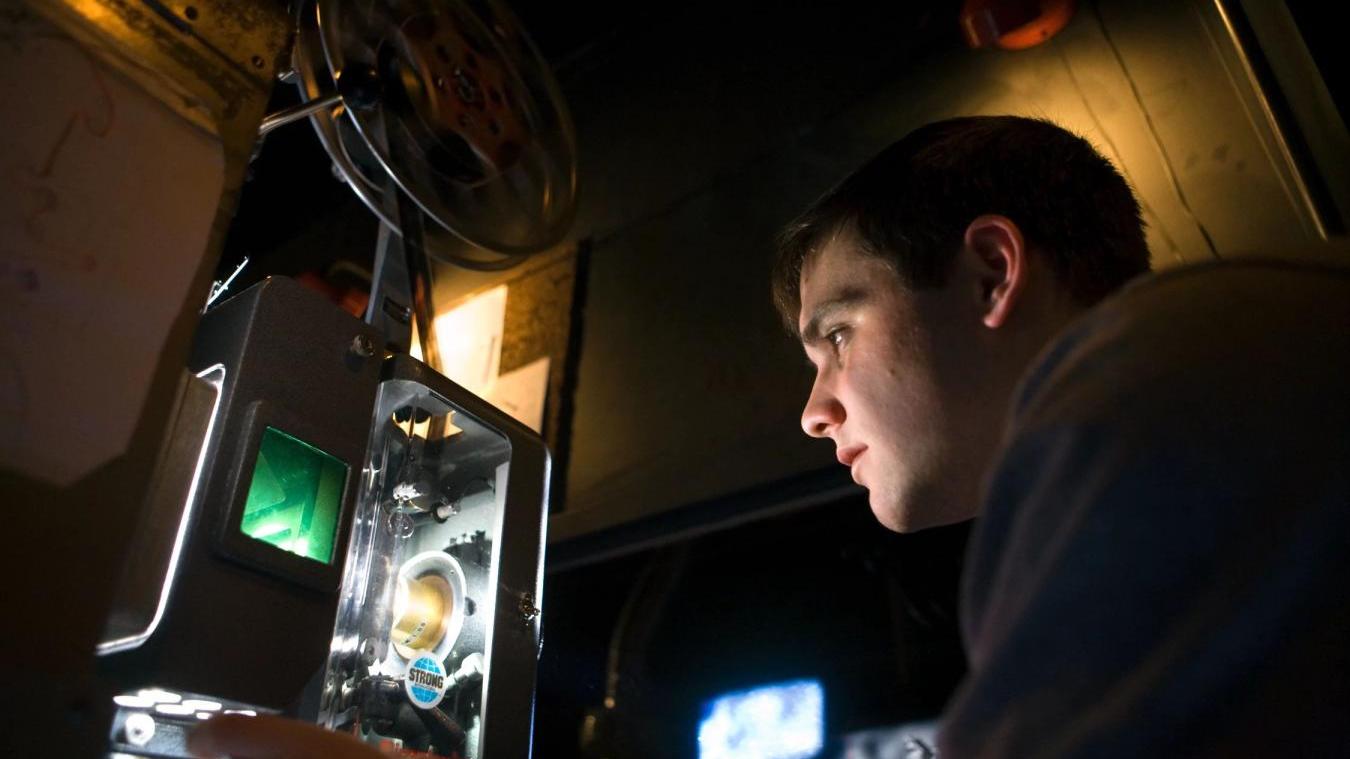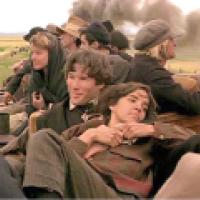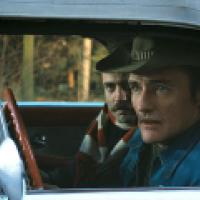Film series: Celebrating 50+ Years of Cornell Cinema!


image from Terrence Malik's sophomore feature DAYS OF HEAVEN (1978), starring Richard Gere, Brooke Adams and Sam Shepard, screening in a gorgeous 35mm print
Established in 1970, Cornell Cinema is one of the longest running campus film exhibition programs in the country. Sadly, our screen was dark last year when we turned 50, but we’re planning to acknowledge the milestone this Fall with the semester-long series: Celebrating 50+ Years of Cornell Cinema!
We’ve pulled together a group of films, drawn primarily from the first half of the organization’s lifetime, to remind patrons of all the memorable cinematic experiences we’ve offered over the years, including film society staples like Ingmar Bergman’s The Seventh Seal and Terrence Malik’s Days of Heaven, both to be projected in glorious 35mm film prints, as well as Vittorio De Sica’s Bicycle Thieves and Kubrick’s 2001: A Space Odyssey, which have screened over fifteen times apiece during the past five decades.
What is likely our most-screened title of all-time, Casablanca, with over 30 presentations, will kick off the series. Visit the film’s page on our website to connect to a multi-part presentation by Cornell Associate Professor Emeritus John Weiss (History) about Cornell’s connection to Casablanca, recorded in 2011 and delivered from Weiss’s table at Rick’s American Café!
Other titles were selected because their renowned makers visited Cornell Cinema at some point during our first 25 years, films like Daisies, by feminist Czech filmmaker Vera Chytilová, and Nitrate Kisses by the late Barbara Hammer, both of whom were hosted by former Cornell Cinema director Richard Herskowitz, and The American Friend by New German Cinema director Wim Wenders, who visited in 1978 when Bill Gilcher was the director.
We’re particularly excited to present a pair of films, documentary hybrids, that we also attribute to Gilcher: French filmmaker Georges Rouquier’s Farrebique, or the Four Seasons (1946) and the follow-up film, Biquefarre (1983), both set on a family farm in the south of France. The films were celebrated by film critic Richard Brody in a 2017 article in The New Yorker.
Former Cornell Cinema director Bill Gilcher, and then history professor John Weiss, brought Rouquier to Ithaca in 1978 to show Farrebique, about a year in the life of a French peasant family. After Rouquier’s visit, Gilcher applied for and received funding from the National Endowment for the Humanities to make a follow-up film to be directed by Rouquier. Gilcher took a leave from Cornell Cinema during the Spring of 1981 to work on the film in France, and the result was Biquefarre (1983), which had its American premiere at Cornell Cinema after Richard Herskowitz had become the director. The premiere was attended by Rouquier and others involved with the film, including Gilcher, one of the film’s producers.
Many years later, Gilcher authored the essay “From Georges Rouquier’s Farrebique to Biquefarre: The Rhetoric of Poetics and the Poetics of Rhetoric” included in Catherine Fowler’s anthology, Representing the Rural: Space, Place, and Identity in Films about the Land (Detroit: Wayne State Univ., 2006).
The more detailed story behind all of this is great, and Gilcher will join us via Zoom on October 4 to talk about it in conjunction with a screening of a recent digital restoration of Farrebique. He’ll also provide a virtual introduction to Biquefarre, which will be screened in a 35mm film print on October 7.
Other selections for the series represent the kinds of specialty films that Ithaca audiences likely wouldn’t have seen, at least not on the big screen, if not for Cornell Cinema. Films like Joan Micklin Silver’s wonderful Hester Street, that 1300 patrons attended when it was first shown in 1975, which we’ll screen in a brand new restoration; René Laloux’s animated marvel Fantastic Planet, a politically minded and visually inventive work of science fiction which used to be shown at midnight; and Julie Dash’s groundbreaking independent film, Daughters of the Dust, which premiered in 1992, and years later became a major inspiration for Beyoncé's visual album Lemonade. (In 2016, Cornell Cinema screened Lemonade and hosted a panel discussion about it: The Aesthetics and Style of Race, Gender and Politics: Beyoncé's 'Lemonade.' Later that semester, we presented a new digital restoration of Daughters of the Dust.)
Over the years Cornell Cinema has introduced Ithaca audiences to many new, or previously unseen, makers from around the world, voices that were sometimes part of an explosion of new cinematic talent from a particular region, like Iran, or Argentina or Romania. To represent this aspect of Cornell Cinema’s programming, we offer a new restoration of renown Senegalese director Ousmene Sembene’s first full-length feature, Mandabi (The Money Order), and two films by the late Iranian master Abbas Kiarostami: Where is the Friend’s House and Close-Up, offered in a double-bill.
We’d be remiss not to include a film by Alfred Hitchcock, as his films have been screened regularly throughout Cornell Cinema’s history—we’re actually offering a 5-film series this Fall!—but we chose Dial M for Murder for this series because we’ll be showing it in spectacular 3D, another cinematic treat that Cornell Cinema has provided, first on specially adapted reel-to-reel 35mm projectors and a rented silver screen, and later with our high-quality digital 3D system. In addition, we had to cancel the March ’20 screening of Dial M for Murder in 3D, so we’re doubly happy to bring it back!
And speaking of cinematic treats, Cornell Cinema has also invited special guests to campus to enhance film screenings, and a perfect example of this is provided by our screening of a recent restoration of George Nierenberg’s fantastic documentary No Maps on My Taps (1979), featuring legendary tap dancers Chuck Green, Bunny Briggs and Howard ‘Sandman’ Sims, screening on September 1. When the film was originally released, the dancers performed live in conjunction with screenings around the country, and Cornell Cinema hosted ‘Sandman’ Sims, who performed in Statler Auditorium in April 1980.
As we shuffle off into our sixth decade, we offer one additional cinematic bon bon: a screening of Josef von Sternberg’s Blonde Venus, because who doesn’t want to watch Marlene Dietrich and a young Cary Grant light up the screen? The film will be introduced by film professor Sabine Haenni, a great supporter of Cornell Cinema.
We hope Ithacans of all stripes continue to support our work into the future. Cheers!



















